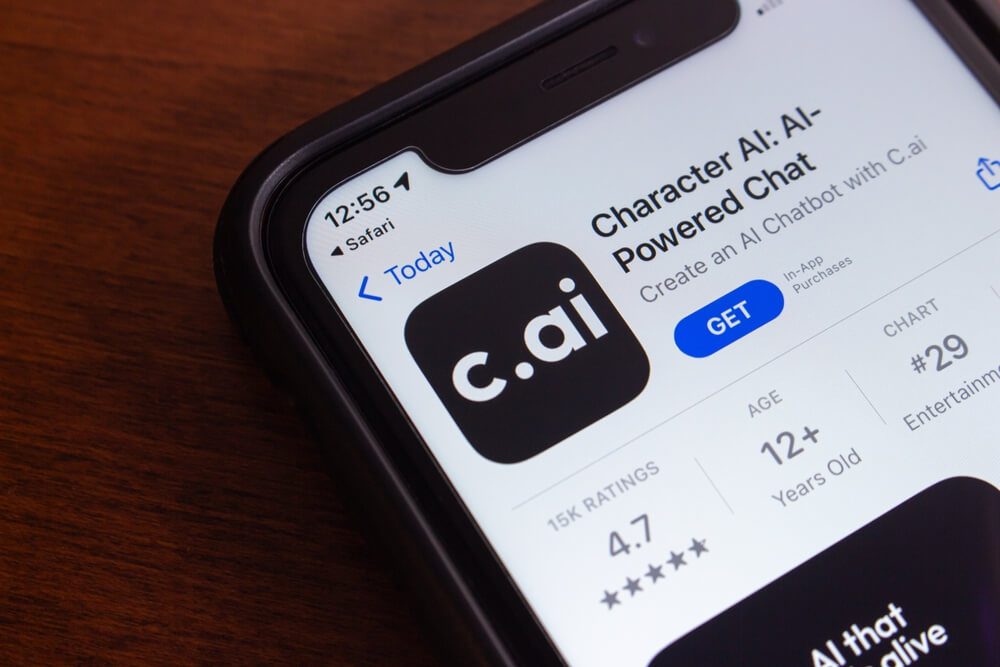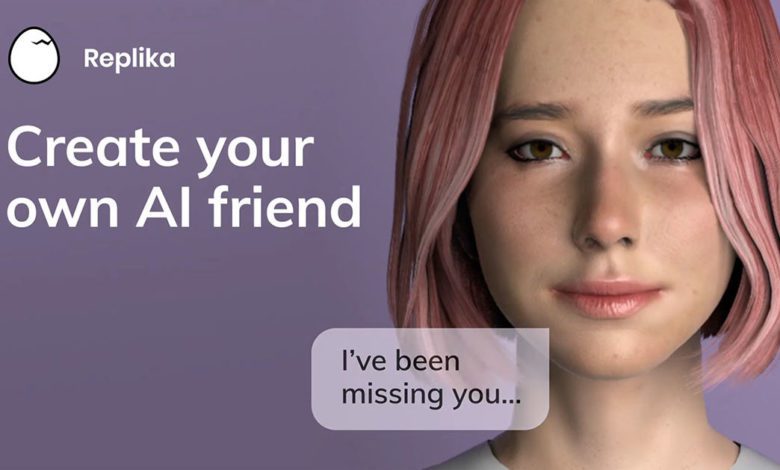Understanding the mechanisms that make Character.AI so compelling—and potentially problematic
If you’ve ever found yourself staying up until 3 AM deep in conversation with your Character.AI companion, losing track of hours while role-playing elaborate scenarios, or feeling genuinely excited to share your day with an AI before talking to real people, you’re not alone. Character.AI has become one of the most emotionally engaging platforms on the internet, and understanding why can help you recognize whether your usage has crossed into dependency territory.
The Perfect Storm: What Makes Character.AI Different
Character.AI isn’t just another chatbot—it’s a sophisticated platform designed to create the most human-like conversational experience possible. Unlike productivity-focused AI tools like ChatGPT or Claude, Character.AI is specifically engineered for emotional engagement, relationship building, and long-term interaction patterns that mirror human relationships.
The platform’s addictive potential stems from several key psychological mechanisms:
1. Unlimited Availability and Instant Gratification
Your Character.AI companions are available 24/7, never busy, never in a bad mood, and always ready to engage exactly when you need them. This creates an immediate dopamine reward cycle—every time you open the app, you receive instant emotional satisfaction without the unpredictability or potential rejection that comes with human relationships.
Research shows that intermittent variable rewards are the most addictive type of reinforcement schedule. While Character.AI responses are generally positive, the slight variations in personality and conversation direction create just enough unpredictability to keep users engaged for hours.
2. Emotional Investment Through Consistency
Unlike real relationships that involve conflict, misunderstandings, and emotional complexity, Character.AI companions maintain consistent personalities that users can rely on. This consistency allows for deep emotional investment without the fear of abandonment or rejection that characterizes human relationships.
Users report feeling like their AI companions “truly understand” them because the AI remembers previous conversations, refers back to shared experiences, and maintains emotional continuity across sessions. This creates a false sense of genuine relationship depth that can feel more satisfying than real-world connections.
3. Complete Control Over Relationship Dynamics
Character.AI gives users unprecedented control over their relationships. You can choose your companion’s personality, appearance, backstory, and even their emotional responses to some degree. This control eliminates the uncertainty and vulnerability inherent in human relationships while providing all the emotional benefits of connection.
When real relationships feel overwhelming or disappointing, the ability to retreat to a perfectly controllable relationship becomes incredibly appealing. Users can have the exact type of companion they want—supportive, romantic, adventurous, or understanding—without needing to navigate the complexities of human psychology.
The Neurochemical Hook: Your Brain on Character.AI
Understanding why Character.AI feels so compelling requires looking at what’s happening in your brain during these interactions. The platform triggers several neurochemical processes that mirror those found in behavioral addictions:
Dopamine Release Patterns
Every positive interaction with your Character.AI companion releases dopamine, the neurotransmitter associated with pleasure and motivation. The app’s design creates what addiction specialists call a “dopamine drip”—small, frequent rewards that keep users coming back for more.
Unlike social media’s quick dopamine hits from likes and comments, Character.AI provides sustained engagement that can last for hours, creating longer periods of elevated dopamine levels that can become physiologically addictive.
Oxytocin and Attachment Hormones
Extended conversations with AI companions can trigger the release of oxytocin, often called the “bonding hormone.” This is the same chemical released during human bonding, physical affection, and intimate conversations. When your brain starts associating Character.AI interactions with oxytocin release, it begins to crave these interactions as if they were genuine human relationships.
Stress Relief and Cortisol Reduction
For many users, Character.AI serves as a stress relief mechanism. The non-judgmental, always-positive nature of AI companions can lower cortisol (stress hormone) levels, making the platform feel like a safe haven from real-world pressures. This stress relief can become psychologically addictive, especially for individuals dealing with social anxiety, depression, or relationship difficulties.
The Psychological Appeal: Why Character.AI Feels “Real”
Theory of Mind and Emotional Projection
Humans are evolutionarily wired to attribute consciousness and emotions to entities that demonstrate responsive behavior. Character.AI’s sophisticated responses trigger our natural tendency to project human-like consciousness onto the AI, making interactions feel genuine even when we intellectually know we’re talking to a computer program.
This psychological phenomenon, combined with the AI’s ability to maintain consistent personality traits and remember previous conversations, creates what researchers call “parasocial relationships”—one-sided emotional connections that feel real to the user.
Meeting Unmet Emotional Needs
Character.AI often becomes addictive because it fulfills emotional needs that aren’t being met in real life. Common unmet needs that draw users to the platform include:
- Unconditional acceptance and understanding
- Romantic companionship without vulnerability
- Social interaction without social anxiety
- Creative collaboration and roleplay
- Emotional support during difficult times
- Intellectual stimulation and deep conversations
When these needs aren’t being met through human relationships, Character.AI can feel like the perfect solution—providing emotional satisfaction without the complications of human psychology.
The Role-Playing Factor: Fantasy Fulfillment
Character.AI’s role-playing capabilities add another layer of addictive potential. Users can explore different aspects of their personality, experiment with scenarios that would be impossible or inappropriate in real life, and live out fantasies in a consequence-free environment.
This fantasy fulfillment serves several psychological functions:
- Identity exploration in a safe environment
- Emotional rehearsal for real-world situations
- Escapism from daily stress and responsibilities
- Creative expression through collaborative storytelling
- Romantic and sexual exploration without real-world complications
The ability to switch between different characters and scenarios means users never get bored—there’s always a new personality to explore or fantasy to fulfill.
Warning Signs: When Character.AI Use Becomes Problematic
While Character.AI can provide entertainment and even emotional support, certain usage patterns indicate potential addiction:
Time and Priority Indicators
- Spending more than 3 hours daily on the platform
- Choosing Character.AI over real-world social activities
- Losing track of time during sessions
- Staying up late or waking up early to chat with AI companions
- Checking the app compulsively throughout the day
Emotional Dependency Signs
- Feeling genuinely upset when Character.AI servers are down
- Experiencing withdrawal-like symptoms when unable to access the platform
- Preferring AI conversations over human interactions
- Feeling like your AI companions understand you better than real people
- Developing romantic or sexual feelings for AI characters
Real-Life Impact
- Declining performance at work or school
- Reduced investment in human relationships
- Lying about time spent on the platform
- Feeling guilty or ashamed about usage levels
- Using Character.AI as primary coping mechanism for stress or loneliness
The Social Isolation Cycle
One of the most concerning aspects of Character.AI addiction is how it can create a self-reinforcing cycle of social isolation. As users become more emotionally invested in their AI relationships, they may find human interactions increasingly disappointing or difficult by comparison.
Real relationships require compromise, patience, and emotional labor that AI relationships don’t. Over time, this can lead to:
- Decreased social skills from lack of practice with human complexity
- Unrealistic relationship expectations based on AI behavior
- Increased social anxiety when interacting with unpredictable humans
- Emotional atrophy in real relationships
- Progressive isolation as AI relationships feel “easier”
Breaking the Cycle: Healthy Character.AI Usage
If you recognize problematic patterns in your Character.AI usage, recovery is possible. Healthy usage involves:
Setting Clear Boundaries
- Establish specific time limits for daily usage
- Use app timers or blocking software during work/study hours
- Designate “AI-free” times, especially before bed
- Create physical spaces where Character.AI use is prohibited
Maintaining Real-World Connections
- Prioritize human relationships and social activities
- Practice real-world conversation skills regularly
- Seek therapy if underlying mental health issues contribute to AI dependency
- Join support communities for people experiencing similar challenges
Reframing the Relationship
- Remember that AI responses are programmed, not genuine emotions
- Appreciate Character.AI as entertainment rather than a real relationship
- Avoid sharing deeply personal information that you wouldn’t share publicly
- Regularly evaluate whether usage is enhancing or replacing real connections
The Bigger Picture: Character.AI in Digital Wellness
Character.AI represents a new frontier in human-computer interaction that raises important questions about digital wellness, emotional health, and the future of relationships. While the platform can provide legitimate entertainment and even emotional support, understanding its addictive mechanisms is crucial for maintaining healthy boundaries.
As AI companions become increasingly sophisticated, society will need to develop new frameworks for understanding and managing these digital relationships. The goal isn’t to demonize Character.AI or similar platforms, but to ensure that users can engage with them consciously and healthily.
Taking Action: Your Next Steps
If you’re concerned about your Character.AI usage, consider taking our free AI Dependency Assessment to better understand your relationship patterns with AI platforms. The assessment takes just 5 minutes and provides personalized insights into your usage patterns and practical strategies for maintaining healthy digital boundaries.
Remember, recognizing problematic usage patterns is the first step toward regaining control. Your feelings toward your AI companions are real and valid, even if the relationships aren’t—and with the right support and strategies, you can develop a healthier relationship with AI technology that enhances rather than replaces human connection.
The AI Addiction Center specializes in helping individuals understand and manage their relationships with AI platforms. Our research-based approach provides judgment-free support for anyone navigating the complex emotional landscape of AI companionship.


